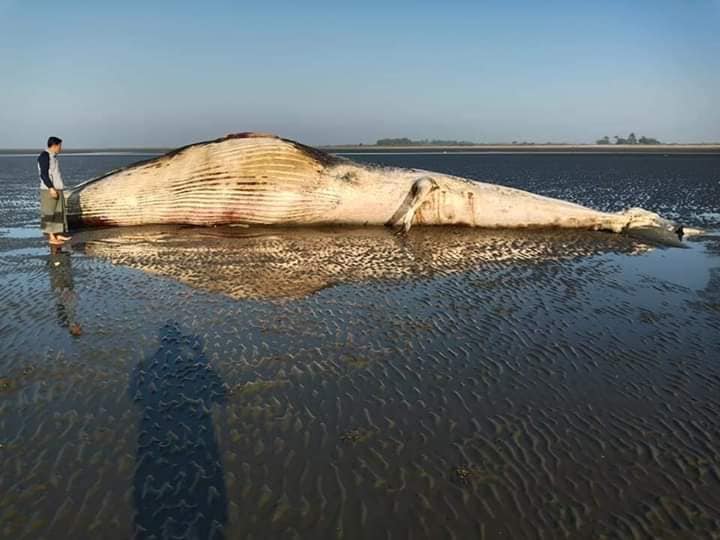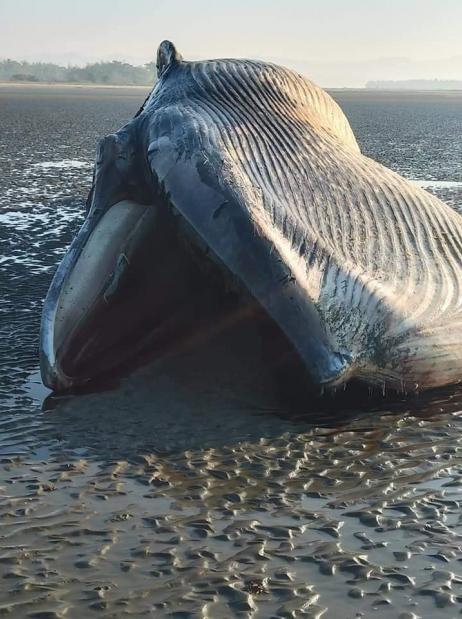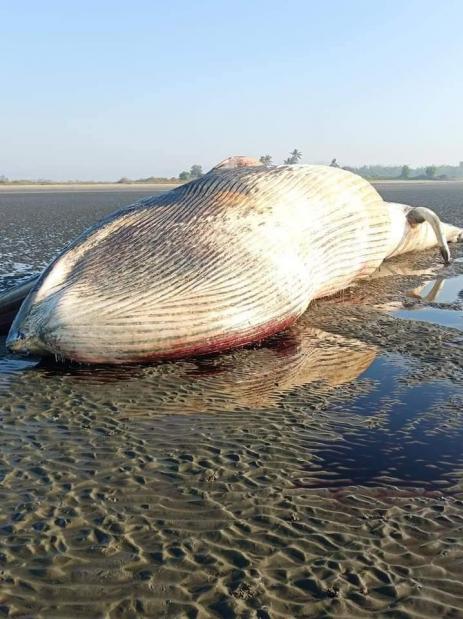
For our weekly top picks and freebies straight to your inbox, sign up here.
A 45-foot whale found dead on a beach in northern Rakhine state was a fin whale—an endangered species and the second-largest species on Earth, said a marine biologist.
The dead mammal was reportedly found yesterday morning on a beach near the town of Al Le Than Kyaw, south of conflict-torn Maungdaw township.
Zau Lunn, a marine biologist for Flora and Fauna International, identified the species because of the small, curved dorsal slopes backwards, the belly is white and a slender flipper is seen in its ventral, or abdominal, part.
Females grow to 88 foot (27 metres) and males grow to 82 foot (25 metres), their life span is about 90 years, their size at birth is about six metres, and they reach sexual maturity after eight to 12 years, a stage the dead whale had reached, explained Zau Lunn.
Most premature fin whale deaths happen because of entanglement in fishing gear and collisions with ships, he said.
“Underwater noise pollution is a big problem for the whales. Unusual underwater noise can interfere the habit of this species,” he added.
“If there is unusual underwater noise such as seismic testing of oil and gas exploration, this noise can cause stress and disorientation of the fish. If this kind of testing happens very close to the fish, it can cause the fish to have temporary or permanent hearing damage, which can result in stranding or death of the whale.”
The long, slender fin whale comes under the baleen group and is found in all major oceans. Commercial whalers hunted the species for oil and meat, and, as a result, the fin whale is endangered.
Current threats to its existence include environmental change such as habitate loss, toxics and climate change, according to the World Wildlife Fund.



